What Are Air Brakes? Pros, Cons, Types, & FAQ
-
Jana Blagojevic
- Last updated:
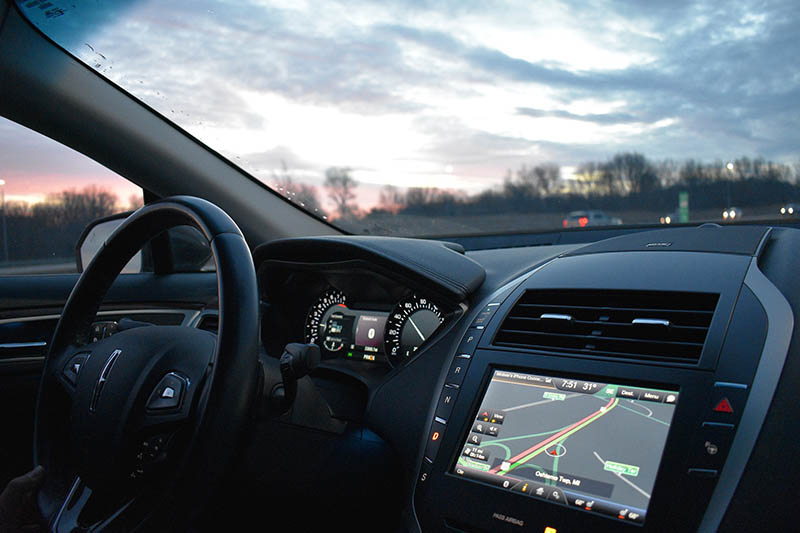
You’ve probably wondered about braking systems on trucks, buses, and other large commercial vehicles and how much they differ from other motor vehicles. Stopping a vehicle with that amount of weight cannot be done with a simple hydraulic brake, so air brakes were invented to make these vehicles safer and more reliable. Air brakes are a braking system that allows the driver to come to a stop with strong stopping power safely. Since air has a lot of energetic potential, it is much more reliable when used instead of hydraulic brakes.
If you’d like to learn more about air brakes and how they work, read the article below. You’ll find the essential information to help you understand these components better.
 How Do Air Brakes Work?
How Do Air Brakes Work?
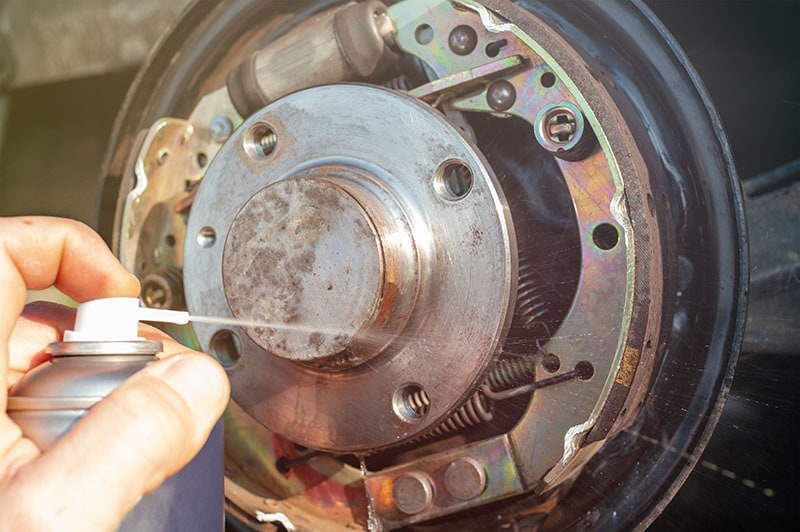
In vehicles that are made to carry heavy loads, the braking system usually consists of air brakes. This system is the most crucial component of a heavy vehicle, and its primary purpose is to keep drivers safe and maintain a reliable vehicle. Air brakes on trucks rely on compressed air instead of hydraulic fluid, which can get lost in a leak. This system begins with air which is pressurized by an engine-mounted compressor. This compressor pumps the air into storage tanks, where it is stored until needed.
This air pressure is used for applying service brakes and releasing the parking brake. When the air pressure in the chamber is released, the spring force engages the parking brake in the spring brake chamber. This method allows for the parking brake to be used as an emergency brake. If pressure drops too low, the force exerted by the spring overcomes the force exerted by the air on the diaphragm and applies the brake on the wheels.
What Are the Different Types of Air Brakes?
Air brakes usually come in two types: disc brakes and drum brakes, or a combination of the two. Each type of brake has its own advantages when used on a truck, and below we will explain their features.
Drum Brakes
Drum brakes are an old, reliable braking system with a simple, low-maintenance design. Drum brakes work by using friction. When the pads press outwards against the drums to slow their rotation, your vehicle will also begin to slow down. Drums are often applied to the rear wheels because most of the stopping force is generated by the brakes on the front wheels. Drum brakes are also used on trailer braking systems for better stability.
- Durable
- Require fewer replacements
- Provide better balance
- Cheaper maintenance and repair
Disc Brakes
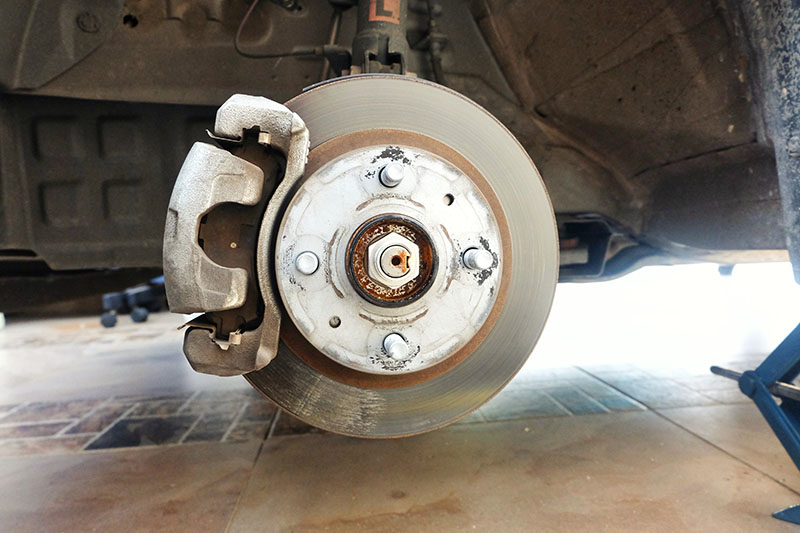
The air disc braking system was invented when trucks increased speed, load, and overall performance. This braking system works with calipers that squeeze the pads against the rotor. Air pressure fills the chamber, and the metal piston is forced against the back of the brake pad. Once the pad is pressed against the spinning rotor, the truck’s speed is reduced.
- Reduced stopping distance
- Less fade
- Simple and fast maintenance and service
- High thermal load
Where Are Air Brakes Used?
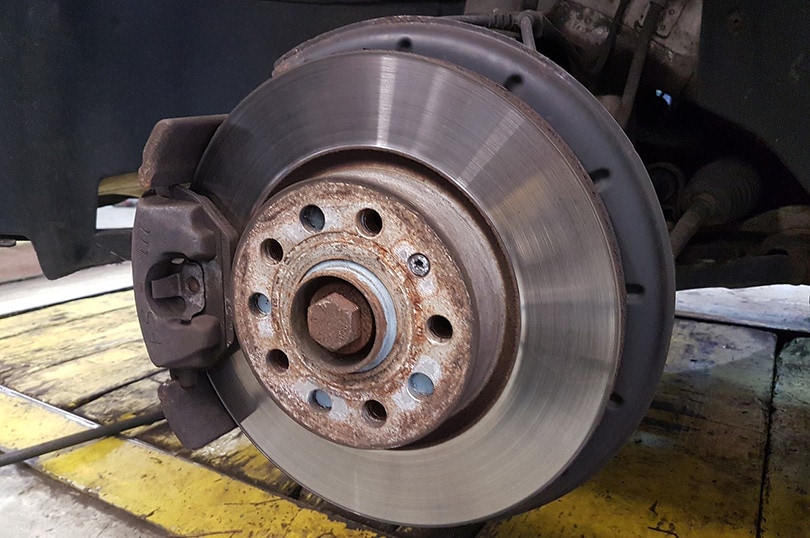
Air brakes are mostly used on large commercial vehicles such as trucks, buses, or tractor-trailers. They are one of the most critical components on diesel trucks, especially when the truck’s load is tens of thousands of pounds. Large vehicles depend on air brakes to keep the driver safe while transporting a significant amount of weight. Air brakes were first developed for use in railway service and are still used in railroad trains.
The reason why only large vehicles require an air-operating braking system is that they need a lot of force to stop. Compressed air has high potential energy, while a hydraulic system would make it almost impossible to stop a moving train or a bus.
Advantages of Air Brakes
The most significant advantage of air brakes over hydraulic brakes is the plentiful air supply. Air is easy to acquire and has high energy potential. Since air is readily available, the chances of failure due to leaks are significantly lower. Air brakes are much more reliable than hydraulic brakes because if there ever were a leak, the brakes would only be reverted to their default, and the vehicle would be brought to rest. Additionally, hydraulic brakes require a special braking fluid which can be quite expensive.
Disadvantages of Air Brakes
Air brakes have several minor disadvantages compared to hydraulic brakes. Air brakes tend to cost more in the first 5 years of maintenance. In the US, drivers need to have special training to be able to drive vehicles with air-operating braking systems. Another disadvantage of air brakes is the amount of noise they produce. In some countries, vehicles using air brakes are banned due to their loud noises, which can cause hearing damage.
 Frequently Asked Questions (FAQs)
Frequently Asked Questions (FAQs)
When were air brakes invented?
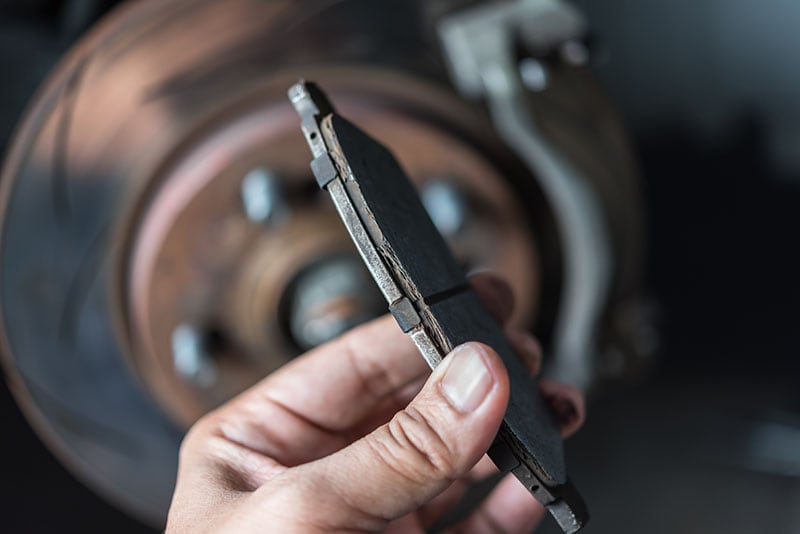
Air brakes were invented in 1869 by an engineer named George Westinghouse. The first air brakes were a revolutionary improvement for the railroad industry, which helped trains travel at higher speeds more safely. George Westinghouse made many improvements over the years, eventually leading to various automatic brake forms. His company manufactured all the equipment necessary for brakes, such as friction draft gears. The Westinghouse Air Brake Company made air brakes for a long time, with an output of 1,000 brake sets per day. Eventually, they evolved into manufacturing electromagnetic brakes.
Why do air brakes make a noise?
Air brakes tend to make a loud noise that comes from the compressor constantly kicking on and off, filling the reservoirs with air and maintaining the correct pressure. When you hear the loud hissing noise, it comes from the compressor, which builds air pressure and opens the valves, which allow the air to escape and create a loud noise. The average noise of air brakes can vary between 95 dB and 115 dB.
 Conclusion
Conclusion
After reading about air brakes, their purpose, and their different types, you can, hopefully, understand them better. They are essential in all commercial vehicles, ensuring the safety of the drivers and all other participants on the road. A vehicle that carries a lot of heavy loads needs to have a reliable braking system and one that doesn’t require too much force from the driver. This system allows for seamless braking, which will stop the truck quickly by using a lot of stopping power.
- Related Read: How Do Trailer Brakes Work? Are There Different Types?
Featured Image Credit: naive_eye, Pixabay
Contents
 How Do Air Brakes Work?
How Do Air Brakes Work? Frequently Asked Questions (FAQs)
Frequently Asked Questions (FAQs)